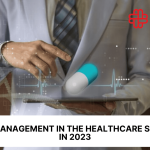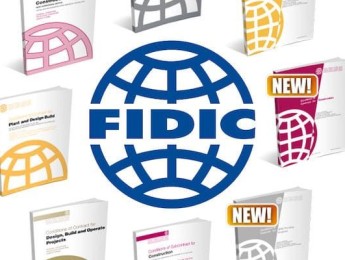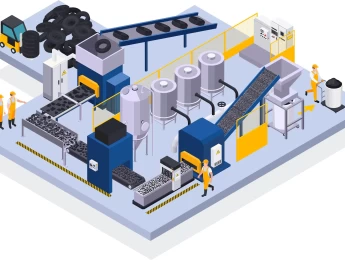Medical devices are necessary in the healthcare industry as they greatly aid in patients' diagnostic and treatment processes. However, these devices have great benefits but can also come with significant risks.
Due to the nature of medical devices, strict regulations surrounding them have been established through ISO 14971. This legislation focuses on the risk management aspects of medical devices and states what is required to ensure machine safety. It primarily explores the types of risk analysis methods and processes that should be used.
Furthermore, risk management encompasses the entire process of identifying risks, assessing, and analysing them. Generating a deep understanding of all probable risks will allow for accurate preventative measures and corrective actions to be implemented. If guidelines are followed correctly, significant risks will be reduced completely, and residual risks will be easier and safer to manage.
Upon completion of this course, participants will be able to:
- Understand the vitality of effective risk management when using medical devices.
- Evaluate the rules, regulations and standards established by ISO 14971.
- Ensure all medical devices are fully compliant with ISO 14971 regulations.
- Conduct effective hazard identification and risk assessments to identify all probable risks relating to all medical devices.
- Analyse risk data to gain a thorough comprehension of the potential problems and establish preventive measures and corrective actions.
- Utilise various methods, techniques, and tools to guarantee effective risk assessments.
- Take accountability for risk occurrence, carry out corrective action and re-evaluate the probability of risks relating to the device.
This course is designed for anyone within healthcare responsible for maintaining medical device safety and reducing risks. It would be most beneficial for:
- Hospital Directors
- Clinical Directors
- Healthcare Facilities Managers
- Risk Analysts
- Risk Managers
- HSE Officers
- Compliance Managers
- Medical Device Manufacturing Personnel
This course uses a variety of adult learning styles to aid full understanding and comprehension. Participants will review example documents of risk assessments and analyse risk data to highlight the types of risks identified and how best to prevent them.
They will be provided with all the needed tools and equipment to participate in the learning methods and exercises, which include presentations, video materials, discussions, and group activities. This combination of individual and group exercises will guarantee that the participants will develop a strong understanding of the taught content and related practical skills.
Day 5 of each course is reserved for a Q&A session, which may occur off-site. For 10-day courses, this also applies to day 10
Section 1 : Introduction to Risk
- Defining what risk is within a healthcare organisation and explain why risk is crucial to manage.
- Identifying common risks relating to medical devices and how they typically occur.
- Exploring the responsibility of risk – who should identify risks, report them, correct them, and manage them?
- Describe and understand the existence of different types of risks – risk control, residual risk, and acceptable risk.
Section 2 : Comprehending ISO 14971
- Explain ISO 14971, its development, and its necessity in healthcare.
- Investigating the principles, regulations and standards established by ISO 14971 and evaluating how organisations can remain compliant.
- Understanding the ISO 14971 definition of risk and how that influences the methods of analysing risks.
- How ISO 14791 has influenced the industry’s standard of risk management principles.
Section 3 : Conducting Risk Assessments
- Identifying and explaining each stage of the risk assessment process – identify, assess, control, record, and review.
- Establishing policies for reporting risks and educating individuals on how to best recognise potential risks.
- Evolving away from the mindset that risks are only a result of device faults.
- Utilising the HAZOP method of identifying hazards.
Section 4 : Analysing Risk Data
- Understanding the three types of risk evaluations – qualitative, semi-quantitative and quantified.
- Assessing the application of Failure Mode and Effect Analysis (FMEA) for measuring fault conditions.
- Acknowledging the limitations of FMEA and understanding when to use other risk analysis methods.
- Accompanying FMAE with preliminary hazard analysis and fault tree analysis techniques.
- Using analysed data to categorise risks based on probability and severity.
Section 5 : Implementing Risk Management
- Establishing risk management goals, with the priority always being to increase medical device safety.
- Prioritising the prevention of significant risks through maintenance and user education.
- Strategising corrective actions in situations where risks occur with the intention of reducing harm and device down-time.
- Re-conducting risk assessments after corrective actions have occurred to identify differences in risk.
- Understanding when residual risk and acceptable risk may occur.
Upon successful completion of this training course, delegates will be awarded a Holistique Training Certificate of Completion. For those who attend and complete the online training course, a Holistique Training e-Certificate will be provided.
Holistique Training Certificates are accredited by the British Assessment Council (BAC) and The CPD Certification Service (CPD), and are certified under ISO 9001, ISO 21001, and ISO 29993 standards.
CPD credits for this course are granted by our Certificates and will be reflected on the Holistique Training Certificate of Completion. In accordance with the standards of The CPD Certification Service, one CPD credit is awarded per hour of course attendance. A maximum of 50 CPD credits can be claimed for any single course we currently offer.
- Course Code IND05-128
- Course Format Classroom, Online,
- Duration 5 days














